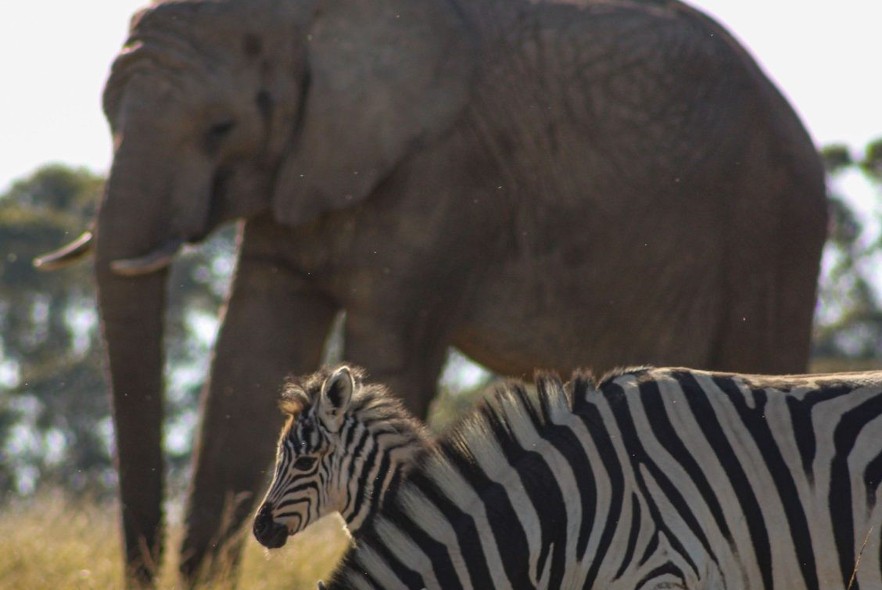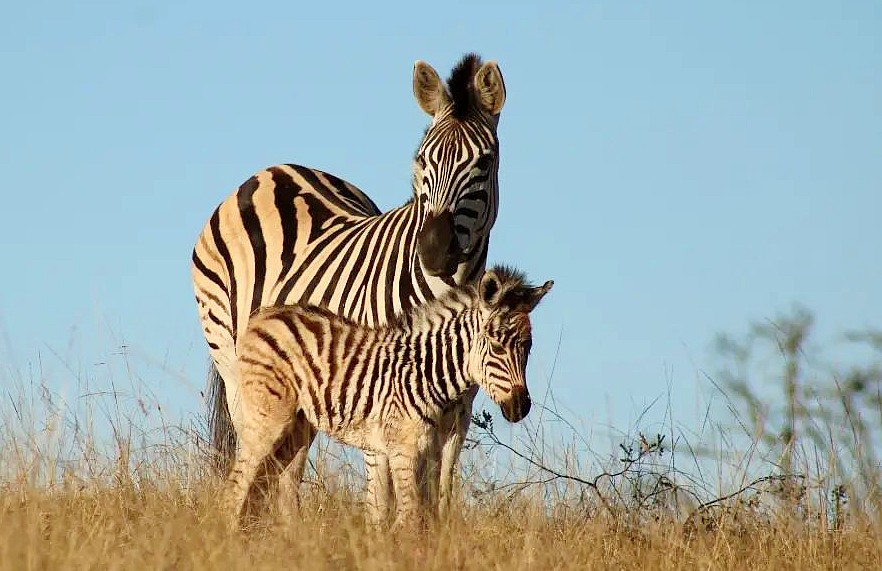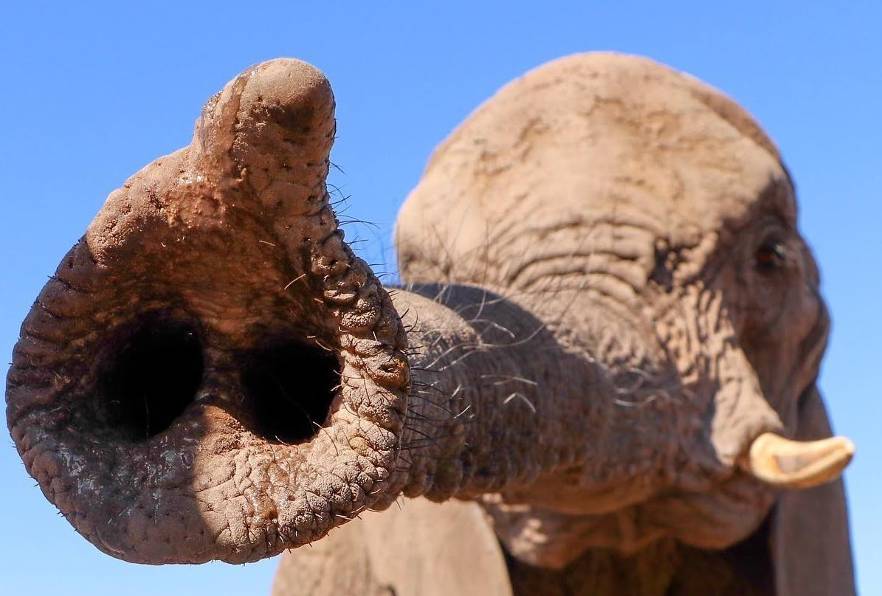Elephants & Zebras – safety in numbers
Project & Pod News / 24 May 2023
Nature has some of the most curious friendships. Volunteers at our Elephant Care and Research project in South Africa may have noticed the herd of zebras following or staying close to the elephants. This is not just to clean up the left overs after the elephants are finished with their morning breakfast! These two species are in fact a perfect example of having each other’s back.
Zebras are prey animals and need all their senses to stay alert and alive, and although African elephants have no official natural predators, top predators of the savannah such as lions and hyenas will occasionally try to attack elephants. Hence these two species rely on each other’s distinctive abilities to keep their enemies at bay.
Elephants are tall and have a very keen sense of smell and hearing but poor eyesight; whereas zebras have exceptional eyesight but their sense of smell and hearing do not match up to their predators. They make a good team when looking out for any predators that might be around!

Scientifically speaking, this is called a symbiotic relationship. Symbiosis is an umbrella term for lifelong interactions between animals of different species living in close proximity. Elephants and zebras they have a mutualistic relationship whereby they benefit from each other presence by facilitating the detection of potential predators, yet they can also survive without the presence of one another. While the elephants and zebras have no predators at our project in South Africa, this innate behaviour has been passed on from generation to generation and is therefore still being observed by the research team and our volunteers on a daily basis.

Another example of a mutualistic relationship involving elephants and zebras alike is with oxpeckers. The red-billed oxpecker (Buphagus erythrorhynchus) and yellow-billed oxpecker (Buphagus africanus) often spend time clinging to grazing mammals such as elephants and zebras. The birds pick at parasites on the animal's body (referred as host), including ticks and blood-sucking flies. This helps keep the host’s parasite load under control, while the birds get an easy meal. Oxpeckers also warn the host when they spot predators by emitting a loud scream, allowing the host to keep a safe distance or to guard its vulnerable young more closely.
Join our Elephant Care and Research project in South Africa where you will be working alongside volunteers of all ages from around the world – a truly special place to make new friendships while observing friendships in the animal kingdom out in the field!







